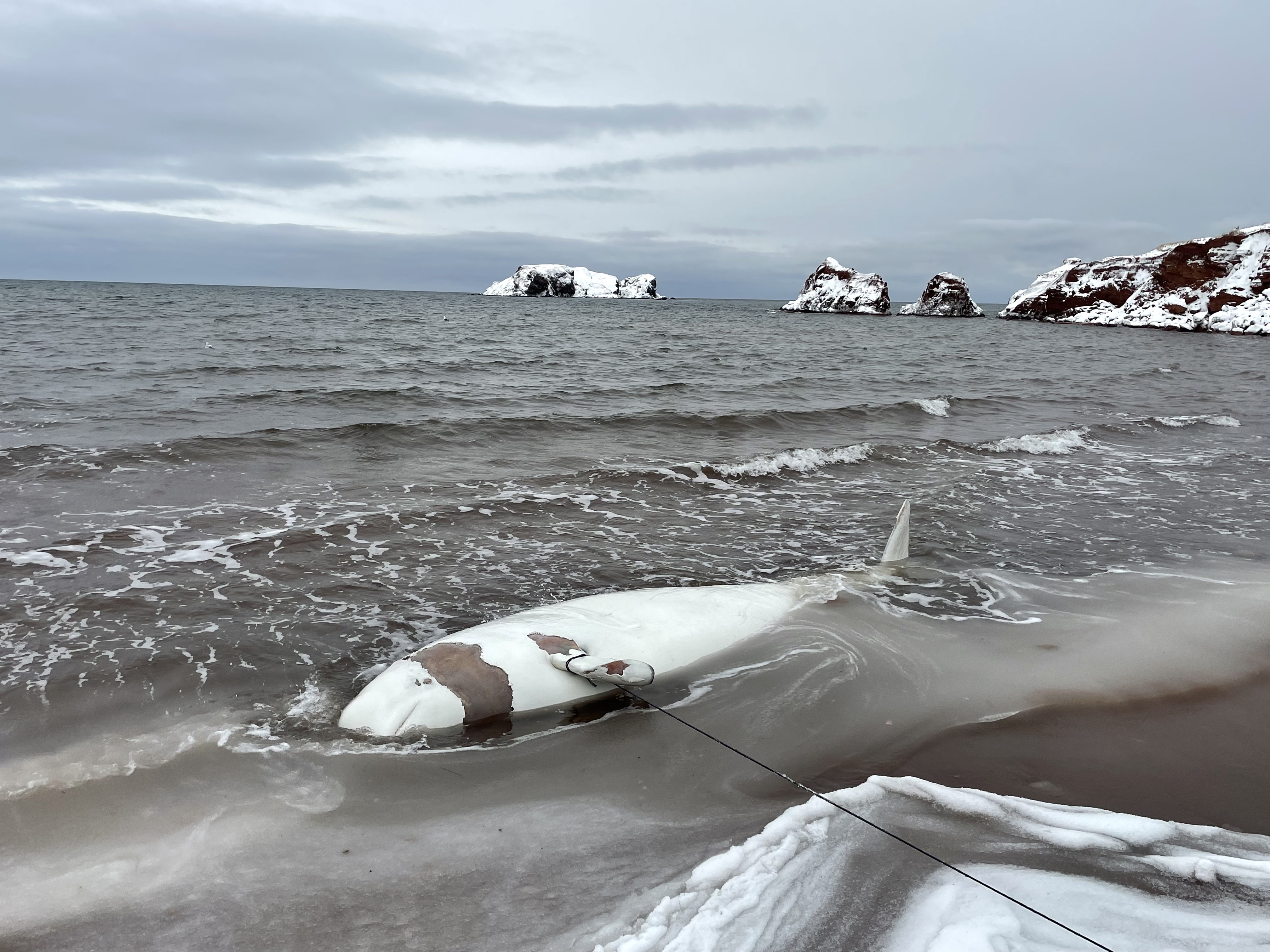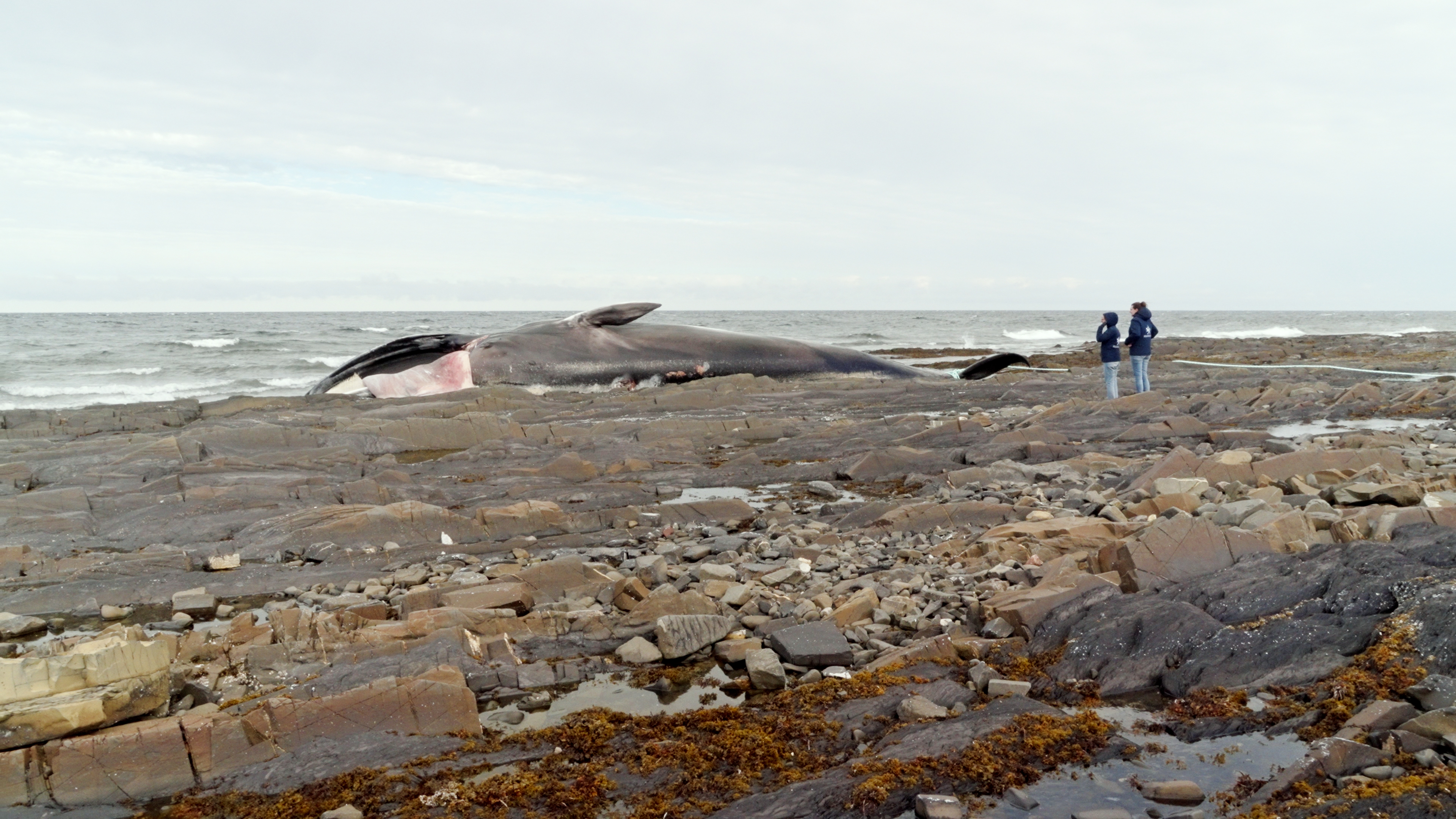Residents of the town of Chandler promptly called 1-877-7baleine on the afternoon of August 13 when a beluga carcass was found on shore, just a few metres from the chalets on rue de la Plage. The 4.55 m long male (one of the largest measured since 1983), was in an advanced state of decomposition. It is rather rare to find belugas beached on the coasts of the Gaspé Peninsula. Every year about 15 or so beluga carcases are found, but they are most often found in the Lower St. Lawrence and North Shore regions.
The Chandler carcass was sampled on Friday by a specialist from the St. Lawrence National Institute of Ecotoxicology (SLNIE). The lower jaw was recovered to determine the age of this large male, while skin, fat, muscle and liver samples were also taken for genetic and contaminant analysis.
This carcass undoubtedly represents an opportunity to learn more about the St. Lawrence beluga population, but at the same time, it represents a nuisance for this population! The high temperature accelerates the whale’s decomposition and the rotting odours are bothersome. Whenever a marine mammal becomes stranded on the shores of the St. Lawrence, it is the responsibility of the Quebec Department of Sustainable Development, Environment and the Fight against Climate Change (MDDELCC), in collaboration with the municipality, to evaluate the situation and undertake the necessary steps to dispose of the carcass. In the case of species at risk such as the beluga, the North Atlantic right whale or the blue whale, a permit for this type of intervention must first be issued by Fisheries and Oceans Canada. The file is thus active and the parties involved are currently assessing the situation. As this procedure can sometimes take a few days, local residents will have to be patient.
Other Beluga Incidents
Since the beginning of August, three other beluga carcasses have been found in the St. Lawrence, all of which were newborns. This year to date, 13 beluga carcasses have been reported to Marine Mammal Emergencies, a number that is within the expected range of averages. Researchers are concerned however about the recent number of newborn mentalities, a trend that has been observed in this population since 2010.





